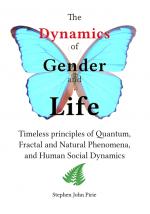I've just listened to an audio (podcast) of some spiritual, self-development school, who talk about all the wonderful things and experiences to be had when we get to 'transcend'.
Transcending is the way forward, it seems.
Uhm, what exactly is it that we are supposed to transcend?
Presumably it is our wrong-headed egos or some such.
Only question is, does it make sense to 'transcend' anything?
Put it this way, when a young child is growing, and learning, at some point we allow them out of their baby cot (playpen). Does it make sense to say that the baby has 'transcended' the cot?
How about a child leaving elementary or what we call in Australia, Primary School, and goes on to high school. Has that child 'transcended' primary school?
One of the principles by which to ascertain the timeless validity of ideas is that they be able to scale. Being able to scale simply means that the principles that apply to the large also apply to the small: as within the whole, so within the part. If they don't apply to the part, when exactly do they get to apply to the whole?
It's like saying when you get to transcend your individuality, you'll be the community.
Quick quiz: what do you have left if you take all the individuals out of a community?
My advice to those who want to follow their own paths, to be creative -- or as Joseph Cambell suggests, do the 'hero's journey' -- is beware any school that mentions or teaches that we can 'transcend'.
What's interesting for me is that while I was writing the above and had the urge to mention Campbell's work (the guy who coined the aphorism  "follow your bliss"), I searched on "the hero's journey'.
"follow your bliss"), I searched on "the hero's journey'.
Well, what a surprise. Some wonderful things were found. For a start there's some interpretations of his work that are interesting (albeit with some shortcomings, but I digress). See Figure right.
Some websites include a description of Cambell's "The Hero's Journey".
Following is from http://www.thewritersjourney.com/hero%27s_journey.htm
The Hero's Journey Outline
The Hero’s Journey is a pattern of narrative identified by the American scholar Joseph Campbell that appears in drama, storytelling, myth, religious ritual, and psychological development. It describes the typical adventure of the archetype known as The Hero, the person who goes out and achieves great deeds on behalf of the group, tribe, or civilization.
Its stages are:
- THE ORDINARY WORLD. The hero, uneasy, uncomfortable or unaware, is introduced sympathetically so the audience can identify with the situation or dilemma. The hero is shown against a background of environment, heredity, and personal history. Some kind of polarity in the hero’s life is pulling in different directions and causing stress.
- THE CALL TO ADVENTURE. Something shakes up the situation, either from external pressures or from something rising up from deep within, so the hero must face the beginnings of change.
- REFUSAL OF THE CALL. The hero feels the fear of the unknown and tries to turn away from the adventure, however briefly. Alternately, another character may express the uncertainty and danger ahead.
- MEETING WITH THE MENTOR. The hero comes across a seasoned traveler of the worlds who gives him or her training, equipment, or advice that will help on the journey. Or the hero reaches within to a source of courage and wisdom.
- CROSSING THE THRESHOLD. At the end of Act One, the hero commits to leaving the Ordinary World and entering a new region or condition with unfamiliar rules and values.
- TESTS, ALLIES AND ENEMIES. The hero is tested and sorts out allegiances in the Special World.
- APPROACH. The hero and newfound allies prepare for the major challenge in the Special world.
- THE ORDEAL. Near the middle of the story, the hero enters a central space in the Special World and confronts death or faces his or her greatest fear. Out of the moment of death comes a new life.
- THE REWARD. The hero takes possession of the treasure won by facing death. There may be celebration, but there is also danger of losing the treasure again.
- THE ROAD BACK. About three-fourths of the way through the story, the hero is driven to complete the adventure, leaving the Special World to be sure the treasure is brought home. Often a chase scene signals the urgency and danger of the mission.
- THE RESURRECTION. At the climax, the hero is severely tested once more on the threshold of home. He or she is purified by a last sacrifice, another moment of death and rebirth, but on a higher and more complete level. By the hero’s action, the polarities that were in conflict at the beginning are finally resolved.
- RETURN WITH THE ELIXIR. The hero returns home or continues the journey, bearing some element of the treasure that has the power to transform the world as the hero has been transformed.
